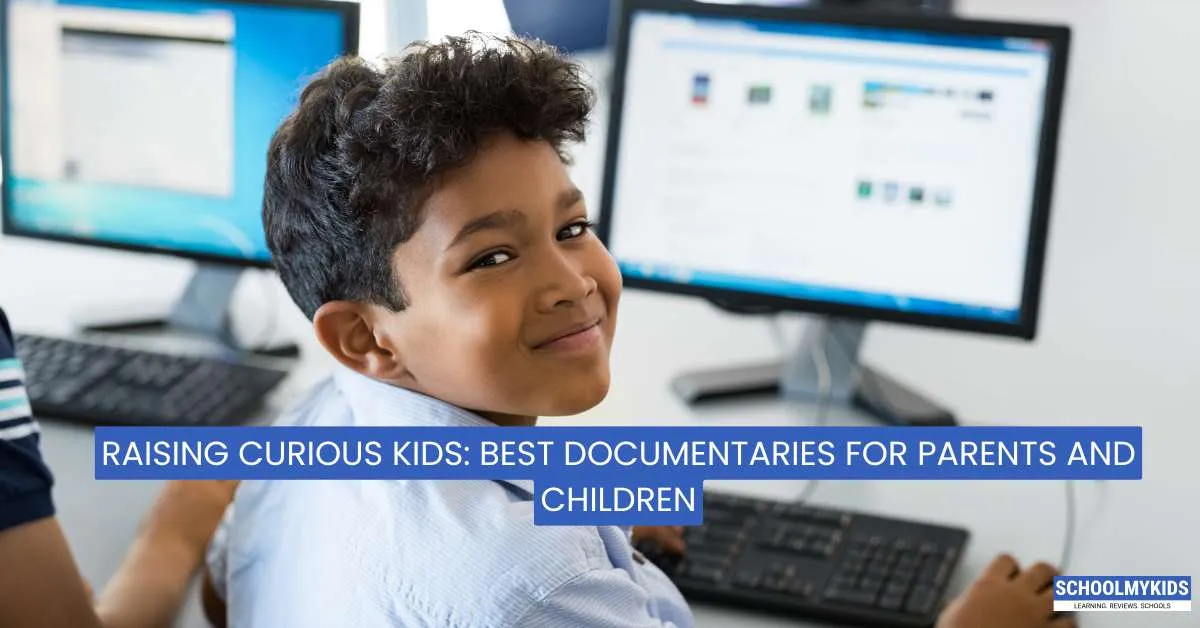In a world saturated with fleeting digital content, finding meaningful and engaging screen time for our children can be a formidable challenge. Documentaries, however, offer a powerful antidote to passive viewing. They are a unique tool for parents to not only educate but to open up new worlds, spark important conversations, and nurture the innate curiosity that every child possesses. From the vibrant depths of the ocean to the vast expanse of space, these films can transport young minds, foster empathy, and create lasting memories for the whole family.
The beauty of a well-crafted documentary lies in its ability to render complex subjects accessible and exciting. For a young child, watching a baby elephant learn to use its trunk is not just entertainment; it's a profound lesson in biology, family dynamics, and the sheer wonder of the natural world. For an older child, a documentary about a pivotal historical event can provide a depth of understanding that a textbook often cannot. It connects them to the human stories behind the dates and facts, fostering a more nuanced and empathetic perspective on the past.
Choosing the right documentary is key. It’s about aligning the subject matter and narrative style with a child's developmental stage and personal interests. The goal is not to lecture but to ignite a spark. The most effective documentaries for young audiences are those that tell a compelling story, featuring relatable subjects, stunning visuals, and a narrative that captivates from start to finish.
Here is a curated list of exceptional documentaries, categorized by age, to help you begin your family’s journey of discovery.
For the Little Explorers (Ages 3-7)
At this age, documentaries should be visually engaging, with simple narratives and a focus on the natural world. The wonder of discovery is paramount.
- "March of the Penguins" (2005): A modern classic, this film tells the incredible story of emperor penguins and their arduous journey across the Antarctic. The focus on family, perseverance, and survival is both heartwarming and educational, presented in a way that young children can grasp.
- "Disney's Oceans" (2009): This documentary is a visual masterpiece, showcasing the breathtaking beauty and diversity of marine life. From playful dolphins to mysterious deep-sea creatures, it’s a perfect way to introduce young children to the magic of the world's oceans without being overwhelming.
- "My Octopus Teacher" (2020): This Oscar-winning film about the unexpected bond between a filmmaker and a wild octopus is a profound story of friendship, intelligence, and the natural world. It’s a gentle yet powerful watch for the older end of this age group, sparking conversations about empathy for all living things.
For the Growing Minds (Ages 8-12)
This age group can handle more complex topics and is often fascinated by science, history, and the mechanics of how things work.
- "The Biggest Little Farm" (2018): This inspiring film documents a couple's eight-year journey as they transform a barren piece of land into a thriving, biodiverse farm. It's a fantastic real-world lesson in ecology, resilience, and the interconnectedness of nature.
- "Science Fair" (2018): Following nine high school students from around the globe as they compete in the prestigious International Science and Engineering Fair, this documentary is a brilliant celebration of intellectual curiosity, passion, and youthful ingenuity. It is incredibly motivating for aspiring young scientists and inventors.
- "Spellbound" (2002): An oldie but a goodie, this film tracks the journey of eight teenagers competing in the 1999 Scripps National Spelling Bee. It’s a captivating look at dedication, pressure, and the diverse backgrounds of the competitors, highlighting the power of hard work.
For the Future Leaders (Ages 13+)
Teenagers are ready for documentaries that tackle challenging subjects, inspire critical thinking, and offer a deeper understanding of the complex world they are preparing to enter.
- "Cosmos: A Spacetime Odyssey" (2014): Hosted by astrophysicist Neil deGrasse Tyson, this series is a breathtaking exploration of the universe. It makes mind-bending scientific concepts like the Big Bang, dark matter, and the fabric of spacetime understandable and awe-inspiring.
- "He Named Me Malala" (2015): This powerful documentary tells the story of Malala Yousafzai, the young Pakistani activist targeted by the Taliban for advocating for female education. Her story is a testament to immense courage and the vital importance of fighting for one's beliefs.
- "The Social Dilemma" (2020): A must-watch for today's teenagers, this film explores the often-unseen impact of social media on mental health, society, and democracy. It’s a fantastic catalyst for crucial family conversations about digital citizenship and conscious media consumption.
Watching documentaries together is more than just shared screen time. It is an active, engaging experience. Pause the film and ask questions: "What do you think about that?" "How did that make you feel?" "What would you do in that situation?" These conversations are where the real learning solidifies. They teach children to think critically, articulate their thoughts, and listen to different perspectives.
In a world that often demands quick answers, documentaries encourage us to sit with big questions. They show us that learning is a journey, not a destination. By making documentaries a regular part of your family routine, you are not just providing entertainment; you are raising curious, informed, and engaged global citizens.









Be the first one to comment on this story.